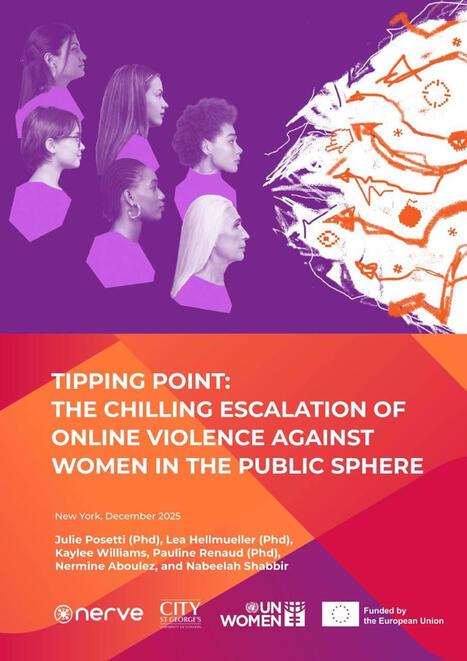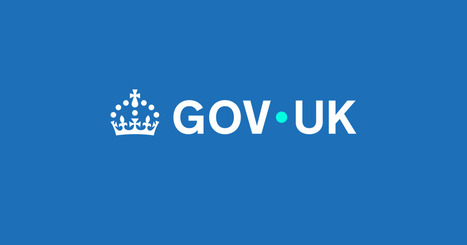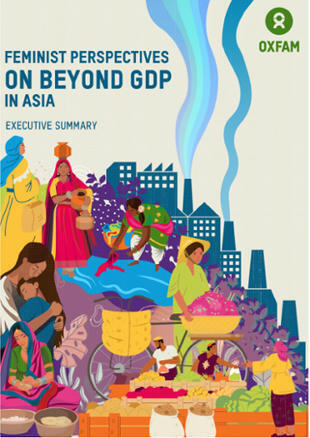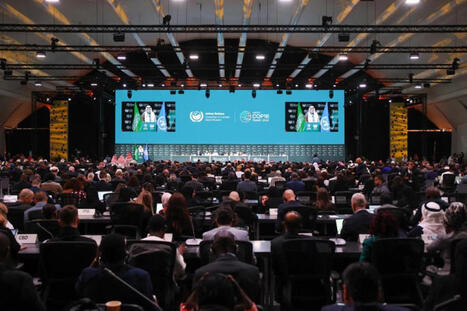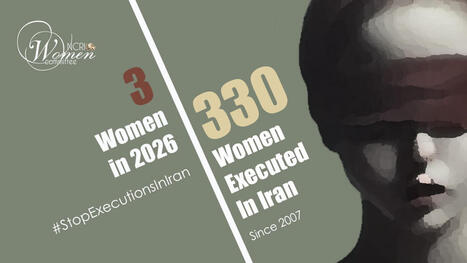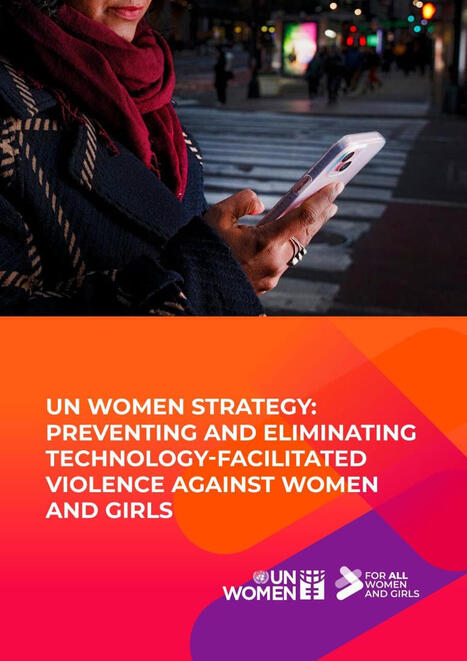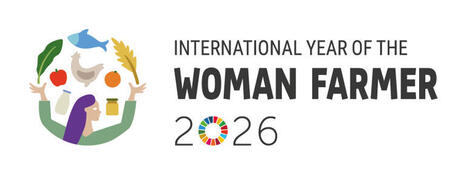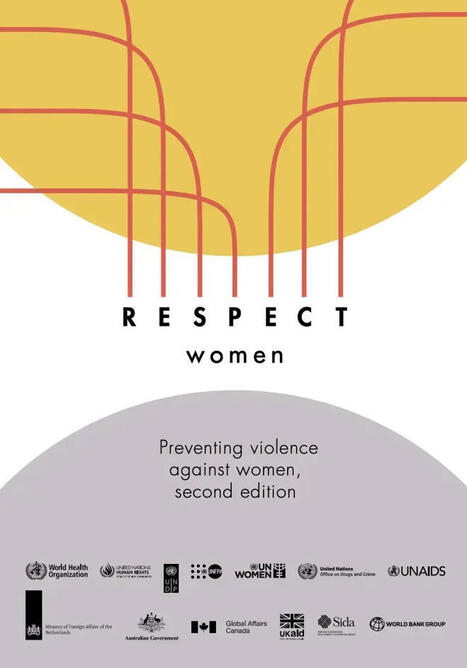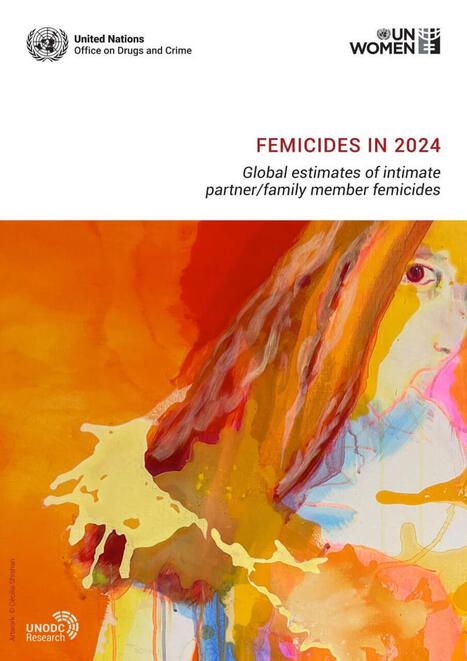 Your new post is loading...
 Your new post is loading...

|
Scooped by
heather dawson
January 22, 11:56 AM
|
How Grok exposes predictable harms to women online. Women's organisations call for action to enforce safety and accountability in tech platforms.

|
Scooped by
heather dawson
January 19, 5:13 AM
|
Understanding girls & boys online experiences | Internet Matters. Explore what research says about the benefits and harms online.

|
Scooped by
heather dawson
January 12, 6:26 AM
|
This publication explores the growing surge of online abuse faced by women in the public sphere—and how digital attacks are increasingly leading to real-world harm. Drawing on global survey findings, it shows how social media, misinformation, and new AI technologies are intensifying risks for women human rights defenders, activists, and journalists. It offers clear insights and calls for stronger protections to ensure women can participate safely and freely in public life.

|
Scooped by
heather dawson
January 12, 6:24 AM
|
Online violence stemming from the manosphere spreads through coded language. Familiarize yourself with some key terms so that you can spot subversive and harmful content in your feed.

|
Scooped by
heather dawson
January 12, 4:41 AM
|

|
Scooped by
heather dawson
December 22, 2025 5:46 AM
|
Violence against women and girls (VAWG) strategy will focus on healthy relationships and consent, and tackle relationship abuse through a new helpline.

|
Scooped by
heather dawson
December 18, 2025 11:26 AM
|
This policy brief explores the risks to migrant women working in sectors that are poorly regulated and at a heightened risk of trafficking in persons. It explores a range of high-risk sectors to identify the sectoral characteristics from a gender perspective that make women migrant workers more exposed to trafficking in persons. It concludes with a set of recommendations on how to enhance the protection of women migrant workers in sectors with a greater risk of trafficking in persons.

|
Scooped by
heather dawson
December 16, 2025 11:13 AM
|
Despite decades of progress, women remain underrepresented in the field of economics. This event explores the gender disparities in the discipline and what this means for economics and society.
Our speakers share research on women in economics, insights from their own experiences and advice for those wanting to make a career in economics. What challenges face women economists at different stages in their careers? What progress has been made? What changes are needed now?

|
Scooped by
heather dawson
December 11, 2025 7:43 AM
|
Asia's rapid GDP growth masks severe costs, including displacement, environmental depletion, and high inequality. A shift beyond GDP is essential, and alternatives must be feminist, ecologically just, and decolonial. While Asia explores wellbeing metrics, most merely complement GDP, failing to challenge the growth paradigm or address systemic injustices fundamentally. True transformation requires an equity- and […]

|
Scooped by
heather dawson
December 10, 2025 2:13 PM
|
Inclusive representation is key to effective environmental governance, addressing climate change, biodiversity loss, and land degradation with diverse perspectives and solutions.

|
Scooped by
heather dawson
December 8, 2025 4:04 AM
|
November 2025 Report: Under the Clerical Regime, Nowhere Is Safe for Women in Iran Women Are Killed in Iran with Complete Impunity

|
Scooped by
heather dawson
December 1, 2025 5:24 AM
|
Violence Against Women and Girls Strategy 2025-2030 This strategy has been informed and shaped by consultation with national and local community and voluntary sector stakeholders, prosecutors, criminal justice partners, academics, local authorities and other government departments.

|
Scooped by
heather dawson
November 25, 2025 2:57 AM
|
Explosive poverty and the collapse of people’s livelihoods—resulting from an exhausted and devastated economy caused by anti-people policies, plundering, and
|

|
Scooped by
heather dawson
January 19, 5:45 AM
|
Akram Rezaei was executed in Rasht Prison, on January 13, amid protests and an internet shutdown. She is the third woman executed in 2026.

|
Scooped by
heather dawson
January 12, 6:30 AM
|
Across Hudaydah, women are leading efforts to strengthen their communities despite years of conflict. This collection of stories brings forward the voices of women who transformed hardship into opportunity through coaching, vocational training, and small business grants. The Quick Impact Projects (QIPs) by the UN Mission to support the Hudaydah Agreement (UNMHA) provided the support that helped many of these initiatives take shape, but the drive and ingenuity came from the women themselves. The stories highlight the journeys of landmine survivors regaining confidence, displaced women rebuilding their livelihoods, and partner staff who overcame personal challenges to continue serving others. They also reflect the vital role of UNMHA’s implementing partners, whose dedication in the field ensures that support reaches those who need it most. Together, these narratives demonstrate how QIPs help strengthen community resilience and advance both the Women, Peace and Security (WPS) and Youth, Peace and Security (YPS) agendas by amplifying local voices and creating pathways for stability and empowerment.

|
Scooped by
heather dawson
January 12, 6:25 AM
|
This strategy sets out how UN Women will prevent and eliminate technology-facilitated violence against women and girls. It explains why online abuse is a growing threat, defines TF VAWG as part of the wider violence continuum, and outlines five pathways for action so that laws, services, data systems, and digital spaces better protect women and girls in an increasingly connected world.

|
Scooped by
heather dawson
January 12, 4:43 AM
|
The United Nations declared 2026 the International Year of the Woman Farmer (IYWF 2026). The Year will spotlight the essential roles women play acros

|
Scooped by
heather dawson
January 6, 1:18 PM
|
December 2025 Report: A Year in Review: Iranian Women’s Resistance Against Religious Dictatorship In 2025, Iranian women faced escalating challenges

|
Scooped by
heather dawson
December 18, 2025 11:28 AM
|
Violence against women is a major public health problem rooted in gender inequality and is a gross violation of women’s human rights, affecting the lives and health of millions of women and girls. Aiming to accelerate progress towards achieving the SDG 5.2 target – eliminating violence against women and girls, the second edition of RESPECT women is published with updated evidence, including from humanitarian settings. This framework, endorsed by multiple UN, bilateral and multilateral agencies, aims to support policy-makers with the latest evidence-based interventions across seven strategies reflected in each letter of RESPECT:

|
Scooped by
heather dawson
December 18, 2025 11:24 AM
|
This report presents new global estimates of gender-related killings. Around 50,000 women and girls were killed by intimate partners or family members in 2024—about 60 per cent of all female homicides—an average of 137 a day, or one every 10 minutes. It calls for urgent, coordinated prevention.

|
Scooped by
heather dawson
December 15, 2025 8:16 AM
|
Europeana online exhibition

|
Scooped by
heather dawson
December 10, 2025 2:14 PM
|

|
Scooped by
heather dawson
December 8, 2025 4:05 AM
|
Safe Shelters in Iran are temporary passages that, although seemingly symbols of refuge and support, in practice reflect the inefficiency

|
Scooped by
heather dawson
December 2, 2025 10:17 AM
|
The Angiolini Inquiry Part 2 First Report: Prevention of sexually motivated crimes against women in public was published on 2 December 2025. The Part 2 First Report addresses Paragraph 3 of the Terms of Reference for Part 2: the extent to which existing measures prevent sexually motivated crimes...

|
Scooped by
heather dawson
November 25, 2025 4:52 AM
|
|
 Your new post is loading...
Your new post is loading...
 Your new post is loading...
Your new post is loading...






